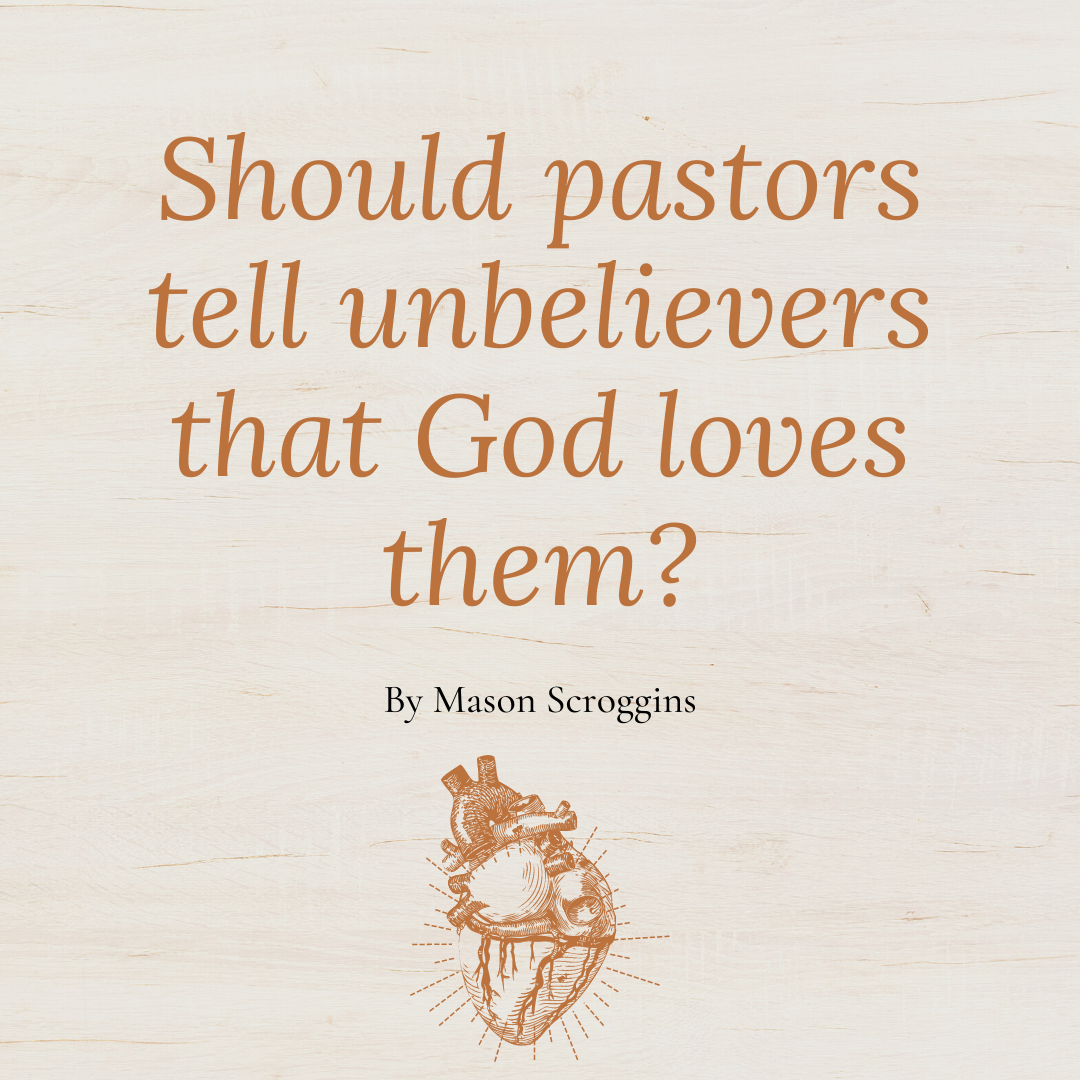Every pastor that has wrestled with the doctrines of grace has at one point or another pondered this question: Should I tell unbelievers that God loves them? The logic goes something like this. Based upon Romans nine it seems that God elects some people to everlasting life and others he does not. This is perhaps most strikingly exhibited in the Calvinist’s go-to passage:
“though they were not yet born and had done nothing either good or bad—in order that God’s purpose of election might continue, not because of works but because of him who calls— she was told, “The older will serve the younger.” As it is written, “Jacob I loved, but Esau I hated.” -Romans 9:11–13
So, if God could say that the election for Jacob meant the hatred and non-election of Esau, should we not also say the same for the unbeliever? This might surprise you, but I do not think so. If you know me, you know that I am a Calvinist. And if you know Calvinist/Arminian debates, then you will probably be even more shocked when I say that John 3:16 answers this question. How so?
The most famous bible verse resolves this problem because it was penned so that unbelievers might believe that God loves them. John doesn’t leave us guessing why he wrote his gospel. He tells us why towards the end of his gospel account when he said this, “…these are written so that you may believe that Jesus is the Christ, the Son of God and that by believing you may have life in his name.”[1] In other words, the gospel witness (which includes John 3:16) was written to unbelievers so that they may believe that Jesus is the Christ. And if they believe they may have life. What do they believe? The good news that God loves them!
Why do we need to make it any more complicated than that? The good news is that God, in love, sent Jesus for unbelievers. Romans also tells us that, “God shows his love for us in that while we were still sinners, Christ died for us.”[2] The “sinners” in this passage is referring to unbelievers. God shows his love to unbelievers in the story of the gospel while they are still in their unbelief. Otherwise, how would an unbeliever ever come to believe? If you say it is anything other than the love of God I would question the motive. No, we love God because he first loved us. [3]And it’s that love that should captivate the Reformed pastor to preach it indiscriminately. So, pastor, not only do I answer that question in the affirmative. I answer with the imperative. You must preach that God loves the unbeliever!
For I am not ashamed of the gospel, for it is the power of God for salvation to everyone who believes, to the Jew first and also to the Greek. -Romans 1:16
[1] John 20:31
[2] Romans 5:8
[3] 1 John 4:9




